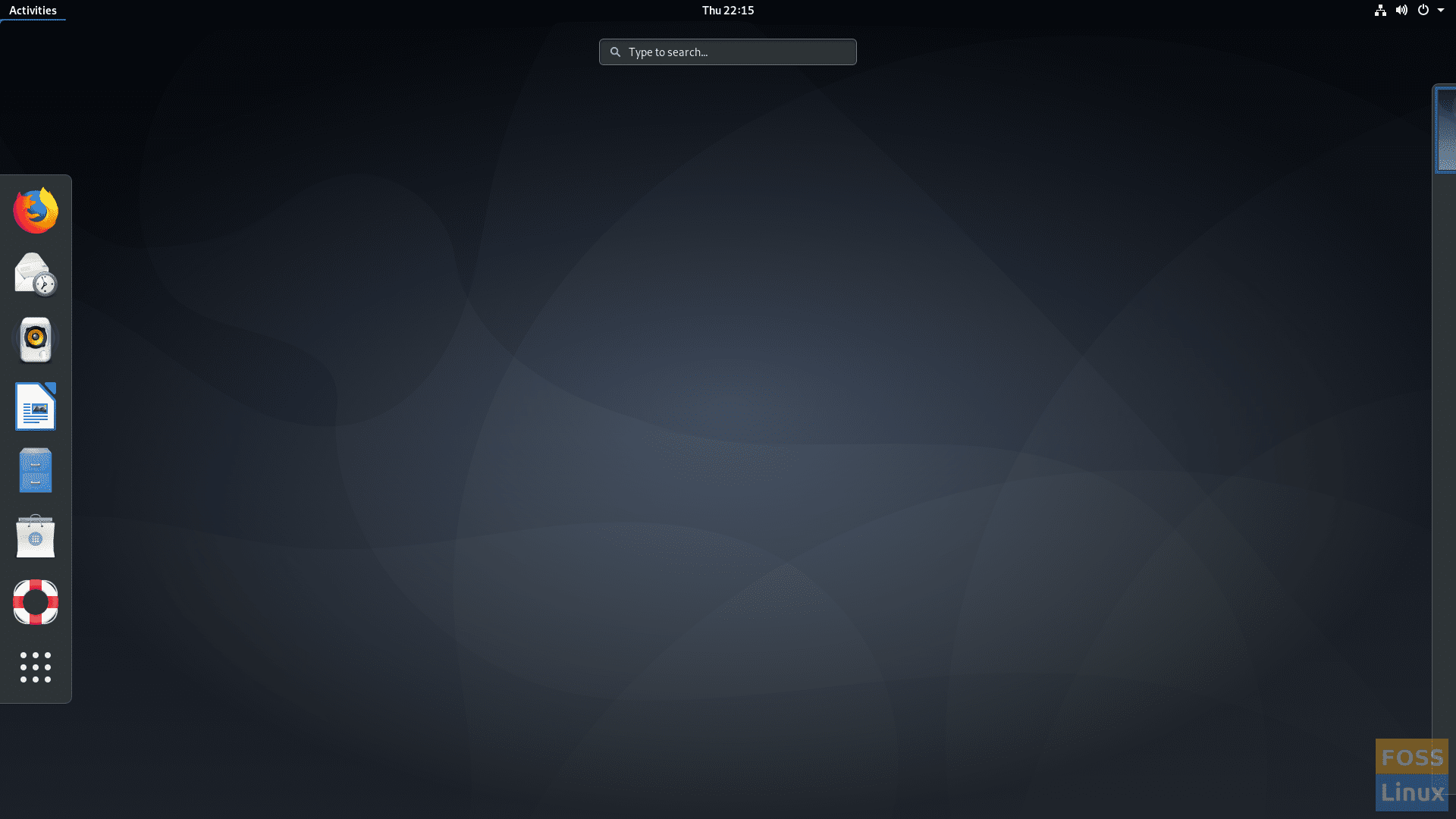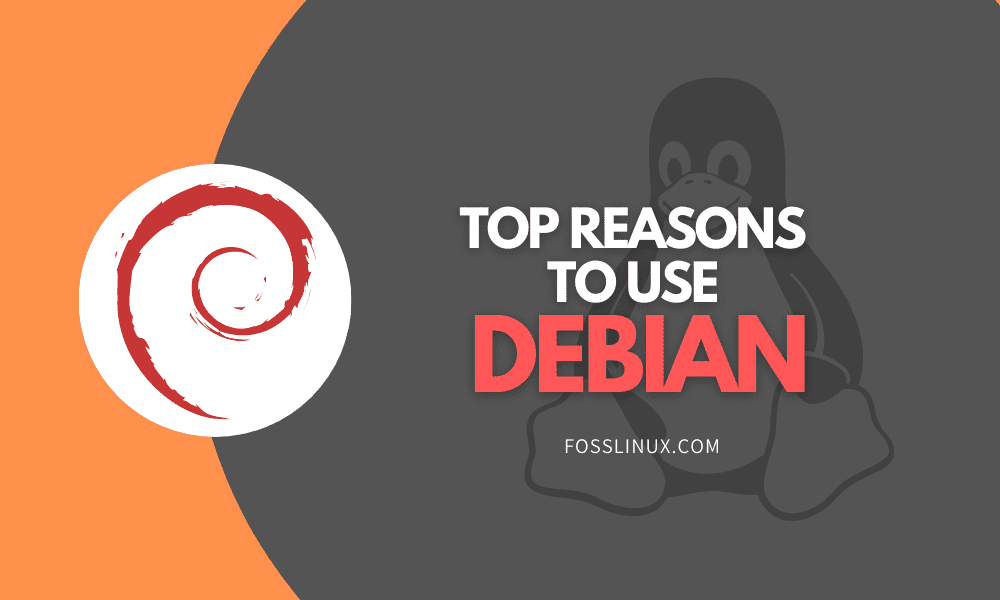You love Linux distros, but you are confused about which is the best distro for you? Do you know that many Linux distros are Debian-based? Why wonder then start your journey with Debian now. Debian is an open-source software meaning it is 100% free. What are you waiting for? No extra costs are incurred to use Debian. It is stable and offers a range of devices such as servers, desktops, and laptops.
Its stability is what has drawn most users to it since its inception in 1993. You have no valid reason to worry about Debian configuration since it provides complete configuration for all its packages. This makes it much manageable and easy to use. Security stability is another factor that cannot be forgotten when talking about Debian. They offer security updates for all their packages. Are you eager to learn more about Debian as a server? Then stay with us since this tutorial will cover the top ten reasons you should use Debian as a server.

Debian 10
Reasons to use Debian as your Linux distro
Note: Debian serves as a foundation for Ubuntu which is known to be one of the most popular versions of Linux. Below are the reasons why you should shift to using Debian as a server now.
1. Dependability and stability
Debian is stable and dependable. It is one of the oldest but most established Linux distributions in the open-source world. Most people have different views and perceptions regarding the use of Linux distros. Some users require the latest software in the market, while others require stable and dependable software. Some even are after efficient functionality only. If you are after stability, don’t look any further since Debian is your ultimate solution.
Some of the new releases have many bugs, making them hard to be used by users. However, the older versions tend to provide more stability and dependability. This calls upon the users to adapt to the changes. The good thing about the older releases is that they have already been tested and proven to be much stable and with fewer bugs than the newer releases. Due to its slow-release protocol, Debian has been widely known for providing stability. Open your PCs with zero chances of surprises by adopting the Debian Linux distro.
2. Free installation
Closed binary blobs are part of the kernel present while installing most Linux distros. Users love PCs that function without this code, and Debian does not install the binary blobs by default. This is why most Linux users opt to use Debian. You have a high chance of not installing any proprietary code on your computer when you stick to defaults. If you don’t want to mess, try out Debian, and we promise you will have no regrets at all. This is why Debian serves as the foundation for some free software endorsed on other Linux distributions such as PureOS and Trisquel.
3. Great software support
If you are a regular Linux user or lover, you might have heard of the term DEB by now. This is Debian’s standard app format. This format is also common for Ubuntu apps; only that compatibility might be the difference. This means that not all DEB packages compatible with Debian are compatible with Ubuntu. However, there’s a possibility that one can find DEBs compatible for both distros.
You don’t have to hassle looking for third-party software with Debian since it contains one of the largest software repos to locate apps quickly. This is an exception to new software. First, try looking for the software in the repos since there is a 99% chance that the apps you are looking for are already present.
4. Debian supports a variety of PC architectures
One most asked question by users is whether their PC architecture is compatible with the Linux distro when installing any distribution. This happens mostly when the users first switch to Linux. There are many PC architectures, and they vary depending on which distribution is to be installed to it. For instance, macOS users have PowerPC processors as compared to other processors such as Intel. Therefore, this makes it hard to install some of the distributions on different architectures.
Many Intel processors support Linux distributions. However, 32-bit machines will stop supporting Linux distros, making it hard for 32-bit users to use the Linux distros. This is not the case with Debian since it provides installers with a wide range of architecture. For instance, 32-bit users can run Debian on their systems without any complication. The good this is that Debian provides support for both 32-bit users and 64-bit users. Do you want to run Linux distros on MIPS or ARM? Debian is the solution, and it has full support for the architecture. Now you know why we recommend you try the Debian distribution.
5. Debian is ideal for servers
Why is Debian ideal for servers? The fact that Debian has stable and dependable software makes it one of the excellent Linux distros that can successfully power your server. You have no reason to look for other Debian versions to run your server. You can use the alternatives to installing a server rather than the desktop environment during the installation phase.
Also, note that your server does not need to be connected to the web. Debian can be used to power your home server using your Wi-Fi network. With Debian, you can easily have a handy cloud replacement by combining it with OpenMediaVault or Nextcloud.
6. Debian versions can be used for long
This happens because Debian lacks a regular release schedule. Newer versions are released after two to three years, and they come out when they are ready. This gap is much longer than the long-term support of other Linux distros such as Ubuntu. I know most of you are confused now, thinking about how this can be a positive impact. Don’t’ worry. I got you covered.
Have you ever noticed that whenever a new version of your software is released, whether on Windows, macOS, or Linux, stability is always questionable? Most of the upgrades end up lagging, or some even break. This is not the case with Debian since you don’t have to deal with the regular downtime of upgrading and downloading new releases. Fewer releases make Debian much stable and dependable over a long period.
7. Debian provides rolling release options
Almost all users are fond of updating software on their PCs to the latest versions. This might seem like a cliché since when new apps and features are introduced, it takes a long time to get to Debian, making some users bored and impatient. However, to combat this, other up-to-date Debian releases are present for a user who needs the latest updates and features.
The releases are not thoroughly tested (they are unstable and in the experimental stage); hence stability is not guaranteed despite having the latest features and updates. With the unstable and experimental releases, you can get continuous regular version updates. This makes Debian rolling release distro with more accessible and manageable installation alternatives such as Arch Linux.
8. Debian is a massive community-run distro
Being open-source, most people are drawn to using Debian. The fact that the GNU OS can be created, shared, and maintained at no cost is a contributing factor to its wide-range usage. Note that this does not mean that the companies are out of the equation. There are popular distros such as Ubuntu, OpenSUSE, Fedora, and elementary OS whose companies are the reason for their existence.
Debian is a ‘massive community-run distro,’ making it different from other popular distros. Debian has no company steering its creation, maintenance, and sharing. Therefore, using a Debian distro makes you the boss of your own. This is one reason that you have to stick with Debian.
9. Debian enables you to be close to the source
Any person would want to be close to the source as much as possible. This is the case with Linux users. Debian is independent, meaning it is not based on any Linux distro. The Debian’s repositories software was packed explicitly for Debian, thus the independence. Running Debian saves its users the hassle of finding a chain where a bug appeared because you are dealing with the source. This makes the debugging process easy and manageable.
10. Debian has lived for ages more than any other Linux distros
Debian has been around for as much time as other earlier Linux distros. Since its inception in 1993, Debian has been around to date. Linux is two years older than Debian; however, Linux distros have come and gone, but Debian is still stable, solid, and dependable. Many developers have invested their time and effort into the Debian project, thus its existence for a long time. That is one of the reasons that we recommend you to stick with Debian.
Conclusion
There are thousands of other reasons as to why you should choose the Debian server. The ones mentioned in this article are the top ten reasons that make Debian unique from other Linux distributions. Its incredible stability and dependability sum up to the vital reason you have to choose Debian. It would help if you shunned away from surprises when opening your OS. To do so, Debian is your ultimate choice. Try it now.

